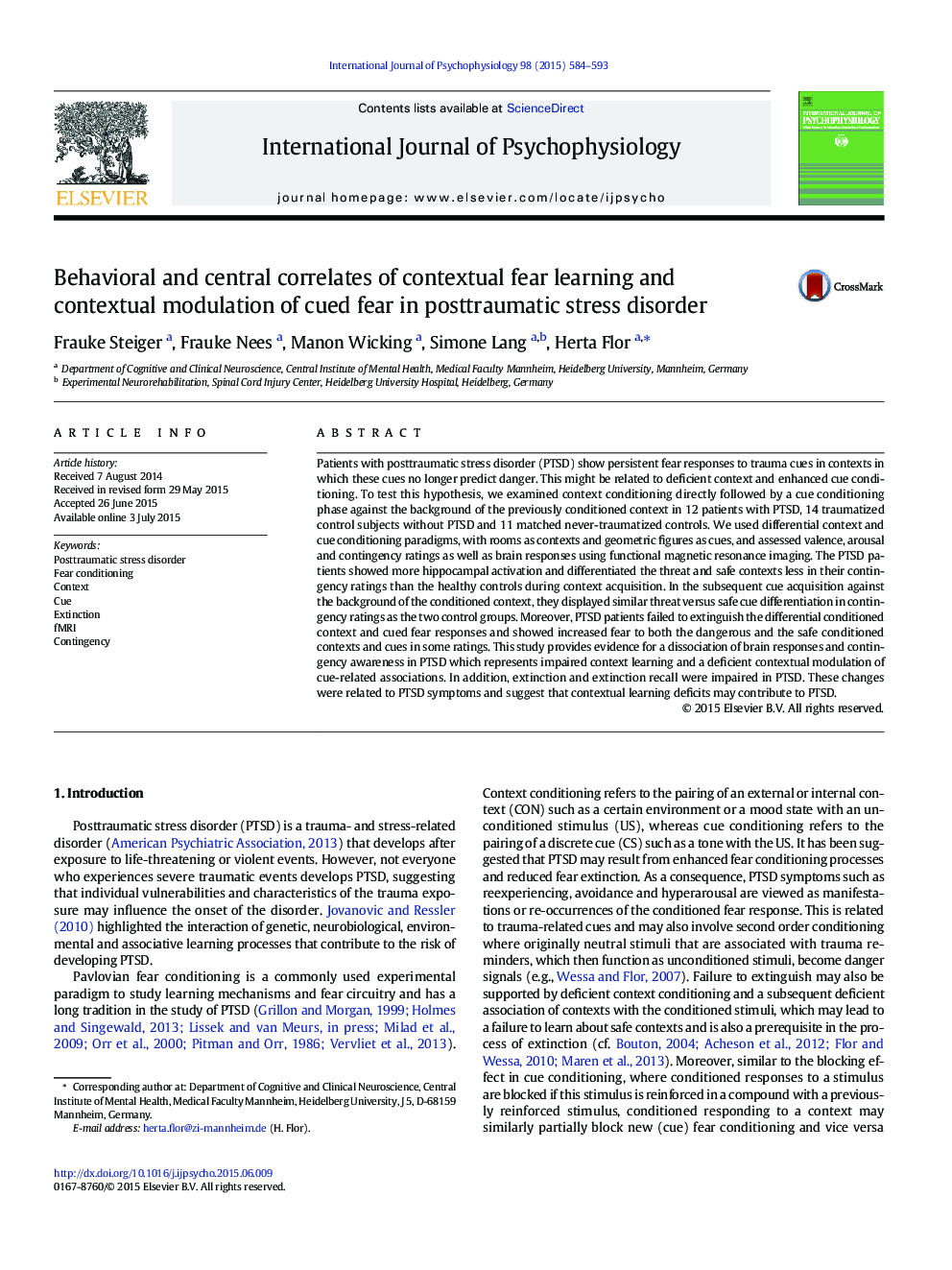| Article ID | Journal | Published Year | Pages | File Type |
|---|---|---|---|---|
| 930839 | International Journal of Psychophysiology | 2015 | 10 Pages |
•Context fear learning as indexed by contingency ratings is impaired in PTSD.•Context-cue combinations normalize discrimination.•PTSD is characterized by higher hippocampal activation during context conditioning.•PTSD patients also show disturbed extinction and extinction memory.
Patients with posttraumatic stress disorder (PTSD) show persistent fear responses to trauma cues in contexts in which these cues no longer predict danger. This might be related to deficient context and enhanced cue conditioning. To test this hypothesis, we examined context conditioning directly followed by a cue conditioning phase against the background of the previously conditioned context in 12 patients with PTSD, 14 traumatized control subjects without PTSD and 11 matched never-traumatized controls. We used differential context and cue conditioning paradigms, with rooms as contexts and geometric figures as cues, and assessed valence, arousal and contingency ratings as well as brain responses using functional magnetic resonance imaging. The PTSD patients showed more hippocampal activation and differentiated the threat and safe contexts less in their contingency ratings than the healthy controls during context acquisition. In the subsequent cue acquisition against the background of the conditioned context, they displayed similar threat versus safe cue differentiation in contingency ratings as the two control groups. Moreover, PTSD patients failed to extinguish the differential conditioned context and cued fear responses and showed increased fear to both the dangerous and the safe conditioned contexts and cues in some ratings. This study provides evidence for a dissociation of brain responses and contingency awareness in PTSD which represents impaired context learning and a deficient contextual modulation of cue-related associations. In addition, extinction and extinction recall were impaired in PTSD. These changes were related to PTSD symptoms and suggest that contextual learning deficits may contribute to PTSD.
